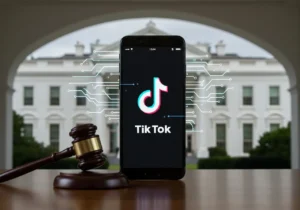In today’s fast-paced digital world, businesses are constantly seeking new ways to stand out, connect with their audience, and build credibility. With the ever-growing importance of online presence, digital marketing has become a crucial element in any successful business strategy. One of the most effective tools in this digital landscape is an online media page. Whether you’re a small startup or a well-established brand, having an online media page is no longer optional—it’s a necessity.
In this blog, we’ll explore why an online media page is an essential part of your digital marketing strategy and how it can benefit your business in the future.
What is an Online Media Page?
An online media page, often referred to as a press or media page, is a dedicated section on your website where journalists, influencers, and the general public can access important information about your brand. This includes press releases, company history, media mentions, logos, images, and any other materials that might be useful for the media when writing about or featuring your brand.
The primary goal of an online media page is to provide a centralized hub of resources for anyone who needs information about your business. It helps you manage your brand’s story, control the narrative, and ensure consistency across all platforms.
Why Your Business Needs an Online Media Page
1. Increased Brand Visibility
In the digital age, visibility is key. An online media page makes it easier for media outlets, bloggers, and journalists to find accurate and up-to-date information about your brand. When reporters are looking to write about your industry or company, they often rely on official sources, and an online media page provides a single destination where they can find everything they need, including your press releases, company history, and high-quality images. This means your business is more likely to be featured in articles, blogs, and news outlets, ultimately increasing your brand’s exposure.
2. Credibility and Professionalism
Having an organized and well-maintained online media page adds an element of professionalism to your brand. It shows that you’re serious about your public image and committed to making it easy for journalists and other media outlets to cover your business. A media page helps build trust by ensuring that the information available is accurate, up-to-date, and easy to access. This credibility is crucial, as it can help boost your reputation in both the media and among consumers.
3. A Centralized Source of Information
Managing your brand’s story can become challenging, especially as your business grows. With an online media page, you have a single, easily accessible location to share important details about your business. It serves as a hub for press releases, logos, photos, and other media assets that can be used by journalists or bloggers to cover your brand. This helps eliminate confusion, ensures accuracy, and ensures that your message remains consistent across different platforms.
4. Effective Communication with the Media
Journalists and media outlets are always on the lookout for fresh, relevant stories to cover. By providing them with an online media page, you’re giving them direct access to the tools they need to write articles, create content, or produce news segments about your brand. This increases the likelihood of getting press coverage, as journalists appreciate having quick access to company resources without having to chase down information.
Additionally, by offering high-quality images, logos, and other media materials, you make it easier for reporters to use your visual assets in their content, which can further amplify your reach and visibility.
5. Enhanced SEO and Digital Presence
An online media page contributes to your overall search engine optimization (SEO) strategy. When media outlets or bloggers reference your business and link back to your website, it boosts your SEO rankings. By strategically using keywords in your press releases, articles, and other content on the media page, you can improve your search engine visibility and help potential customers find your brand more easily.
Having quality backlinks from credible sources can also improve your online reputation and help you rank higher on Google, which is invaluable for attracting new customers and growing your business.
6. A Resource for Investors and Partners
An online media page isn’t just for journalists; it can also serve as a valuable resource for potential investors, partners, or collaborators. Investors often look for companies that are transparent and have a solid public presence. A well-organized media page allows them to access critical information about your business, such as press coverage, financial updates, and milestones.
Similarly, potential business partners may use your media page to understand your brand’s values, mission, and public image before entering into a partnership. By providing easy access to this information, you increase your chances of attracting high-quality partners and investors.
7. Real-Time Updates and Flexibility
Unlike traditional media kits, which require manual updates, an online media page offers the flexibility to make real-time updates. This is particularly important in today’s fast-moving digital landscape, where news and events happen quickly. Whether you’ve released a new product, announced a partnership, or received an award, your online media page allows you to update the information as soon as the news breaks.
This ensures that anyone visiting your media page will always have the latest details about your company, helping you stay relevant and connected to your audience.
The Future of Digital Marketing: The Increasing Role of Online Media Pages
As the digital landscape continues to evolve, the role of online media pages will only become more significant. With the rise of social media, content marketing, and influencer collaborations, businesses need to maintain an organized and accessible space to share their stories. The online media page is the cornerstone of this strategy, offering a centralized platform for content distribution, brand control, and media relations.
In the future, online media pages may become even more integrated with other marketing tools. They could feature interactive elements like videos, podcasts, and live streams, offering a dynamic experience for journalists and media professionals. Businesses may also begin using AI and data analytics to personalize the content on their media pages, further enhancing the user experience and increasing engagement.
Conclusion
The future of digital marketing lies in your ability to adapt, innovate, and leverage new tools to enhance your brand’s visibility. An online media page is one such tool that can make a huge difference in how your brand is perceived by the media, potential investors, and your audience. By providing an organized, centralized hub of information, you’re ensuring that your company stays in control of its narrative while increasing its credibility, visibility, and reach.
If you haven’t already, it’s time to consider creating or updating your online media page. In doing so, you’ll not only improve your brand’s digital presence but also position your business for future growth and success in an increasingly competitive market.





